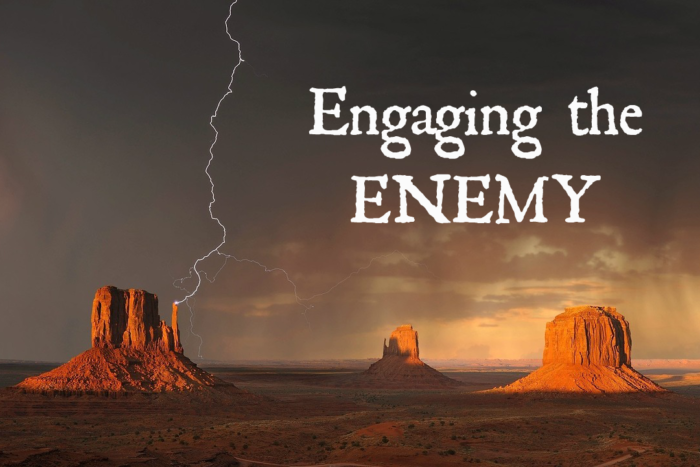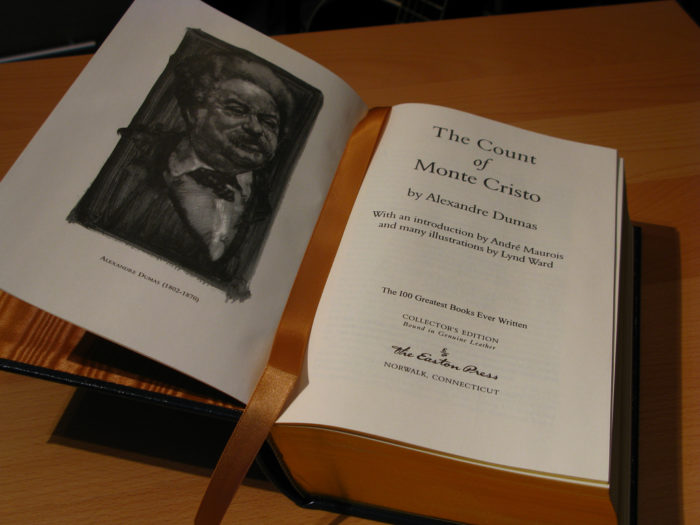Engaging the Enemy
As a young person, I have to confess that I had this “pie in the sky” dream that if I could just talk to someone long enough, I could change their mind. That somehow God would use my wise words or carefully crafted email to help someone see the light. I recognize now that it was my pride and immaturity that drove this dream. I started to understand, many years ago now, that there are few happy endings and that people who don’t want to hear the truth just don’t want to hear the truth. I could talk constantly for a year and, without the working of God in a person’s heart, never move their opinion even an inch in any direction.
I have also learned to be much more discerning on what is even worth confrontation. Many times, haughtily thinking I knew all the answers, I would confront people about inconsequential things. I have since learned that A.) I don’t have all the answers and B.) That so many things should be simply ignored and covered by grace. Only biblical issues are worth defending. Oh, how often I would get caught up in stupid, little arguments that were just about my selfish pride! Unfortunately, I still do this on occasion.
So, while we do know that much grace should cover non-biblical issues, how exactly do we deal with the really important, biblical issues? Jesus gives us some insight in Luke 20. Here He sets an excellent example for us in engaging our enemies. Let’s take a look at it.
1. Long debates and arguments over issues are a waste of time. Speak the truth in love and then walk away.
If you notice in Luke 20:8, Jesus refused to get in an argument with them over His authority. So, too, should we refuse to argue. If the Holy Spirit isn’t working in the heart of the person we are engaging, we are wasting our time. While some people do enjoy a healthy debate about important biblical issues, we must always be extremely careful not to cast a negative light on God and His Word through our words and actions. We are His ambassadors here on earth and, for some, we are the only contact they will have with true Christianity.
2. Be consistent. It is critically important to live a life that matches our words.
We know that Jesus’s life matched His words perfectly since He was God and could not sin. We, on the other hand, struggle with this. Do our lives match what we are saying? If our kids or grandkids hear us talking about spiritual things, does what we say match how we live? If not, we are better off just not saying anything. On the other hand, we will never be perfect. This is about a humble heart and a consistently examined life and not about waiting for perfection before opening our mouths. If we wait for perfection, we will never say anything!
3. Ask them a question.
In Luke 20:24, we see that Jesus asks the Pharisees a question. How often do we get put on the defensive and just freeze? Or answer in a way that is angry or irritated? We can slow that process down and give ourselves time to think by asking a question.
4. Recognize that our greatest hostility will often come from those within the church.
The Pharisees were the religious leaders of the day. It was these organized church leaders that felt most threatened by Jesus and His claims. We have seen this play out over and over throughout church history. The organized “church” was often responsible for the cruelest campaigns of persecution. And even now–in this post-modern era–the believer who is committed to a literal, inerrant, and sufficient view of scripture will find their greatest enemies are those that use the name of Jesus Christ. We must be prepared for this sad and discouraging fact as we defend true Christianity.
5. It is okay to name or warn against false teachers.
There is this ploy of Satan’s to deceive Christians into thinking we cannot mention specific names of false teachers. This is extremely clever, since–if this would be true–it would keep many undiscerning, immature believers in the dark, continuing to read and listen to those that taint and destroy true biblical faith. But here in Luke 20, the Lord Himself sets an example by warning His disciples (within the hearing of all of the people) of the scribes (v. 46-47). He says, “Beware the scribes.” He names them and says beware! We can and should do no less.
6. Biblically think through the hot button issues of today.
I have to confess that I am not a great debater. My heart starts beating, my mind starts to race, and I start talking without thinking. I am not great when I am in “defense” mode. Jesus, on the other hand, was completely composed. He not only knew the answer to any question they could ask, He knew the reason they were asking the questions. While we don’t have the same advantage that Jesus had, we can and should wisely prepare ourselves to defend God and His Word by spending some time studying what the Bible has to say about the issues of the day. We must especially be prepared to defend the Gospel. I Peter 3:15 puts it like this: but in your hearts honor Christ the Lord as holy, always being prepared to make a defense to anyone who asks you for a reason for the hope that is in you; yet do it with gentleness and respect.
7. Our first priority should always be to preach the Gospel.
We must remember that the Gospel is the heart of our message. The Gospel is the means by which people are saved. We must keep this first and foremost in our minds as we engage our enemy. This is the heart and soul of our message. We offer nothing but empty hope and useless words without it. While we don’t see this specifically in Luke 20, we know that Jesus’s whole ministry was focused on people understanding who He was and why He was there.
8. You will be viewed as the enemy if you preach an unadulterated Gospel. Plan on it and be prepared.
Jesus was the arch enemy of the Pharisees. He ruined their selfish plans and cast {very valid} doubts on their false religion. We see in other passages of scripture and also in church history that any believer who defends the true Gospel is going to be attacked by Satan, by the world, and even by the organized “church” (which is really just the world in disguise). This is not a very “fun fact” and has caused many to close their mouths and just go about their lives quietly. Not only do we not want to be attacked, we have this great desire for the praise and laud of men. We want to be liked. This may drive some of us even more than the desire to not be attacked. The Bible tells us to expect the hatred of the world (John 15:19; I John 3:13) and that the devil is our enemy (Ephesians 6:11-13; I Peter 5:8). Ephesians 6:10-20 gives great insight into how to prepare ourselves for attack. This is worth some study as we find ourselves thrust more and more often into battles over Christian principles that are ridiculed and rejected.
___________
Instead of expecting our dreams to be fulfilled and a life unhindered by problems, let us recognize that true believers must engage themselves for battle! Being a Christian–a real, biblical one–is not fun and games. Instead, we must have courage and boldness. We must spend time in the Word and on our knees, humble and teachable before the Lord. And we are called to turn away from sin and to reject the world and its vain philosophies (Luke 9:23; Colossians 2:6-10).
This is not the Gospel preached today and, like Paul, I find myself wondering how the church has turned so quickly away from the true Gospel (Galatians 1:6) but I guess that is a post for another day! I hope these principles for engaging the enemy have given you some food for thought as you face whatever spiritual battle is before you today.






